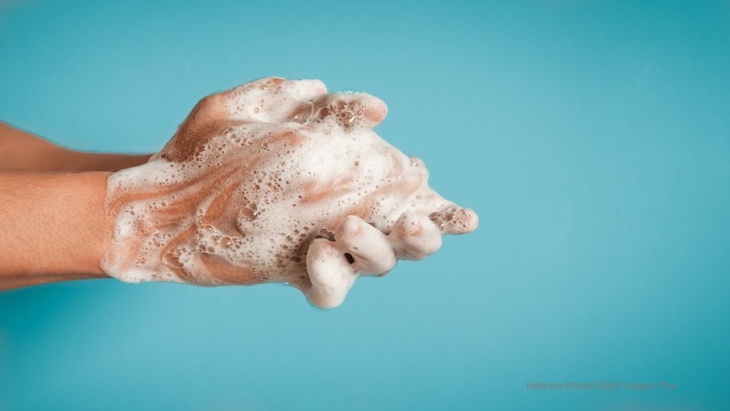A new study has found that fecal-oral transmission of COVID-19 is possible, but not likely. The research was conducted in China. It must be stressed: this type of transmission is theoretically possible, since viruses can enter the GI tract and survive in feces, but no cases of infection via this route have been identified. All cases diagnosed so far have been through inhaling droplets containing the virus. This is not a likely vehicle for transmission, but people should know about it.

This new information is concerning because it brings food into the COVID-19 pandemic. The fecal-oral route of transmission means that when a person who is infected with a bacteria or virus goes to the bathroom, gets a tiny amount of feces on their fingers, and doesn’t wash their hands, then touches another surface or prepares food, the virus could be transferred. We see this type of transmission in hepatitis A outbreaks, E. coli outbreaks, and Salmonella outbreaks.
The study states that “the gastrointestinal trace is a welcoming environment for the virus.” A “significant portion” of coronavirus patients do experience diarrhea, nausea, vomiting, and abdominal pain before the respiratory symptoms begin. And viral RNA (ribonucleic acid), which is the DNA in the virus that it uses to replicate, is detectable in fecal samples.
Scientists studied 73 patients who were hospitalized for possible COVID-19 and tested from February 1 to 14, 2020. Serum, nose and throat swabs, urine, stool, and tissue samples were collected. The age of patients who had positive RNA in stool ranged from 10 months to 78 years. Duration of stool positivity ranged from 1 to 12 days. And this is interesting: the feces of 17 patients stayed positive even after respiratory samples tested negative.
The good part of this research is that testing feces should be added to the testing regimen for COVID-19. Any way patients can be tested will help identify positive cases, even if they are asymptomatic. Knowing how the virus is transmitted is key to stopping the pandemic.
So now that we know that fecal-oral transmission of COVID-19 is theoretically possible, what does this mean to you? It means that everyone should wash their hands as much as possible, using soap and water. The outer coat of the virus is fat, which soap easily destroys. Anyone who prepares food for anyone else is told that frequent handwashing is critical: that advice is more important than ever now.
And it’s important to remember that the virus is destroyed at 136°F. Cook your food to safe final internal temperatures, using a reliable and accurate food thermometer, wash your hands thoroughly while working in the kitchen, and you can protect yourself.




